The 16th Limassol Economic Forum took place on Friday, gathering prominent policymakers, diplomats, and business leaders to discuss how global disruption is reshaping economies, governance, and trade.
One of the core messages of the event was that resilience, reform, and leadership are essential for both Cyprus and Europe to thrive in an increasingly unstable world.
Yousef Gamal El-Din, host of You’re in Business and former Bloomberg Television anchor, opened the forum by observing that Cyprus continues to punch above its weight, referencing recent upgrades by global rating agencies.
He added that geopolitical variables would be decisive in shaping the global economy this year, setting the stage for discussions on uncertainty and adaptation.
Deputy Minister to the President Irene Piki said that resilience is built through vision, discipline, and cooperation.
She explained that the government is building the country’s economic resilience through targeted public policies anchored on reform, investment, and institutional integrity.
Piki said these three pillars form a comprehensive national strategy that allows Cyprus to turn challenges into opportunities and evolve into an innovative, internationally connected economy.
She stressed that reform is the architecture of the future, reaffirming that President Nikos Christodoulides has placed reform at the core of his administration’s agenda.
Piki also mentioned that a strong economy requires a government that fosters stability, clarity, flexibility, and trust.
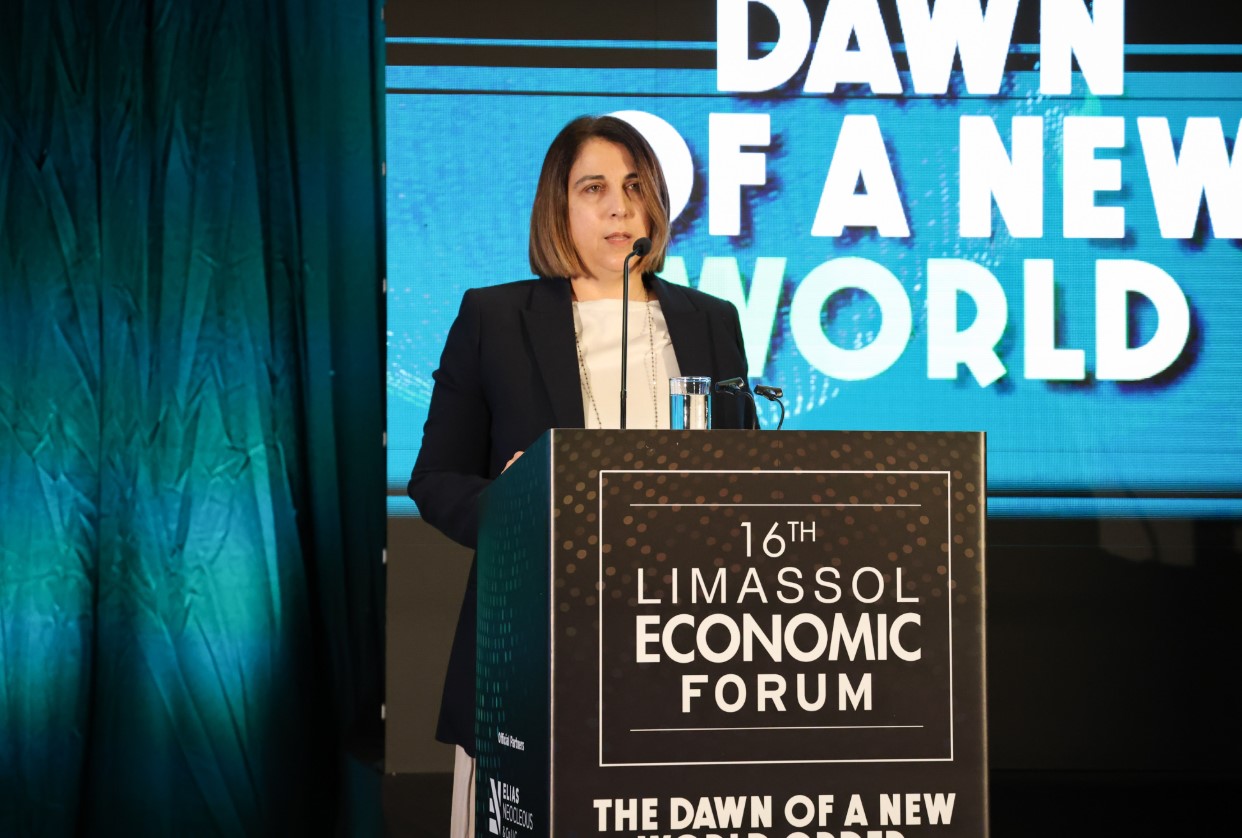
She added that significant reforms are already moving from design to implementation, referencing efforts to modernise Cyprus’ justice system, the upcoming tax reform and the acceleration of the state’s digital transformation.
Moreover, Piki said that the government aims to translate reform momentum into strategic investments that go beyond capital inflow to form true partnerships with businesses.
Initiatives such as the recently-launched Business Support Centre, she explained, will help in this effort.
She also highlighted Cyprus’ full employment conditions, low inflation, and strong fiscal position, describing them as signs of economic health.
In addition, Piki said that the recent visit by India’s Prime Minister aligns with efforts to promote Cyprus as a gateway to the European market, while the Minds in Cyprus initiative demonstrates investment in human capital.
She further stated that a rules-based system rooted in transparency and trust is crucial, with reforms underway in the legal service and audit office to strengthen governance.
Piki also touched on environmental issues, saying that climate resilience and sustainability are now integrated across all national strategies.
Following Piki was a business leaders’ panel, moderated by Gamal El-Din. It explored how inflation, geopolitical risks, regulatory burdens, and digital transformation are reshaping markets and business strategies.
Elias Neocleous, Managing Partner at Elias Neocleous & Co LLC, said that the map of the world keeps changing faster than laws or regulations, warning that certainty has become a luxury.
He described today’s world as a series of overlapping crises redrawing borders and trade routes, while raising concerns over cyber threats and the erosion of the rule of law.
Neocleous said clients now seek predictability, governance optionality, and security, adding that agility, not perfection, defines success in today’s environment.
George Pantelides, Partner and Consultative Businesses Leader at Deloitte Cyprus, said that European companies are burdened by overregulation and need simpler, purpose-driven frameworks.
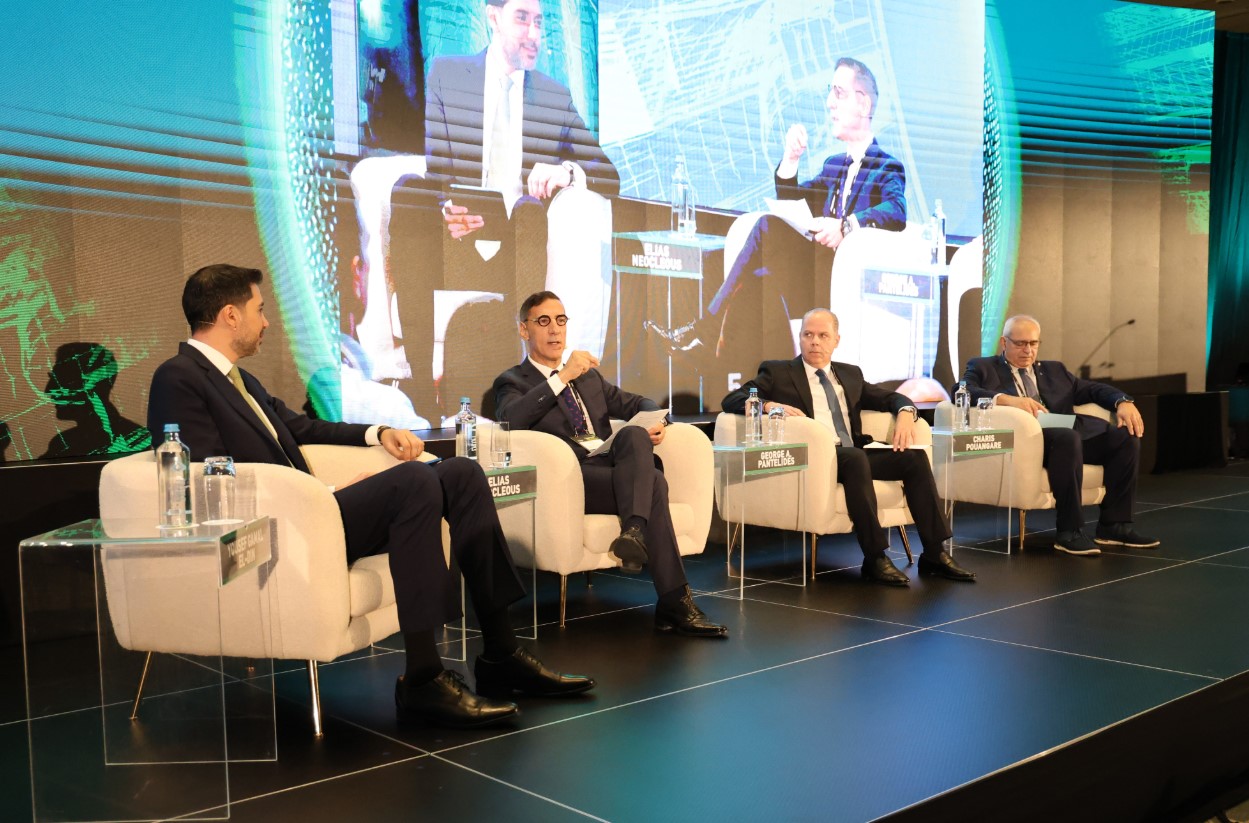
He stressed that Cyprus must maintain a competitive cost base to attract investment, while tax certainty is vital for businesses, particularly in the context of the government’s tax reform, which is nearing completion.
Moreover, Pantelides highlighted that Europe’s skills shortage requires urgent attention through continuous professional development, upskilling, and reskilling.
He also said that there should be more support for entrepreneurship among young people, as well as exporting industries, including pharmaceuticals and manufacturing, while underlining that technological adoption is fundamental for growth.
Charis Pouangare, Deputy CEO and Chief of Business at the Bank of Cyprus, said that Cyprus’ small and open economy cannot remain insulated from global shocks.
He also mentioned that bank lending has increased this year, reflecting strong private sector activity.
Pouangare further stated that, based on his recent interactions with clients, businesses feel a sense of urgency, adopting scenario-based planning to prepare for uncertainty.
He also described this as a digitalisation era, focused on lowering costs and driving strategic partnerships.
Discussing Europe’s competitiveness, Pouangare said Europe is geopolitically weak and overregulated, citing the Draghi report, which looked at the challenges faced by both industry and other private companies in the Single Market.
He said that until Europe becomes more dynamic, companies themselves must take initiative to innovate and expand globally.
Neocleous provided another perspective to the discussion, saying that Europe’s rule of law and institutional strength remain a key advantage, saying this builds trust and stability, while Cyprus’ position as a bridge between East and West enhances its value.
Pantelides added that the green transition must remain tied to competitiveness, citing China’s nuclear investments as prompting Europe to reconsider its own policies.
He said that education must align with the labour market, urging policymakers to support creativity, startups, and export-oriented sectors, as mentioned above.
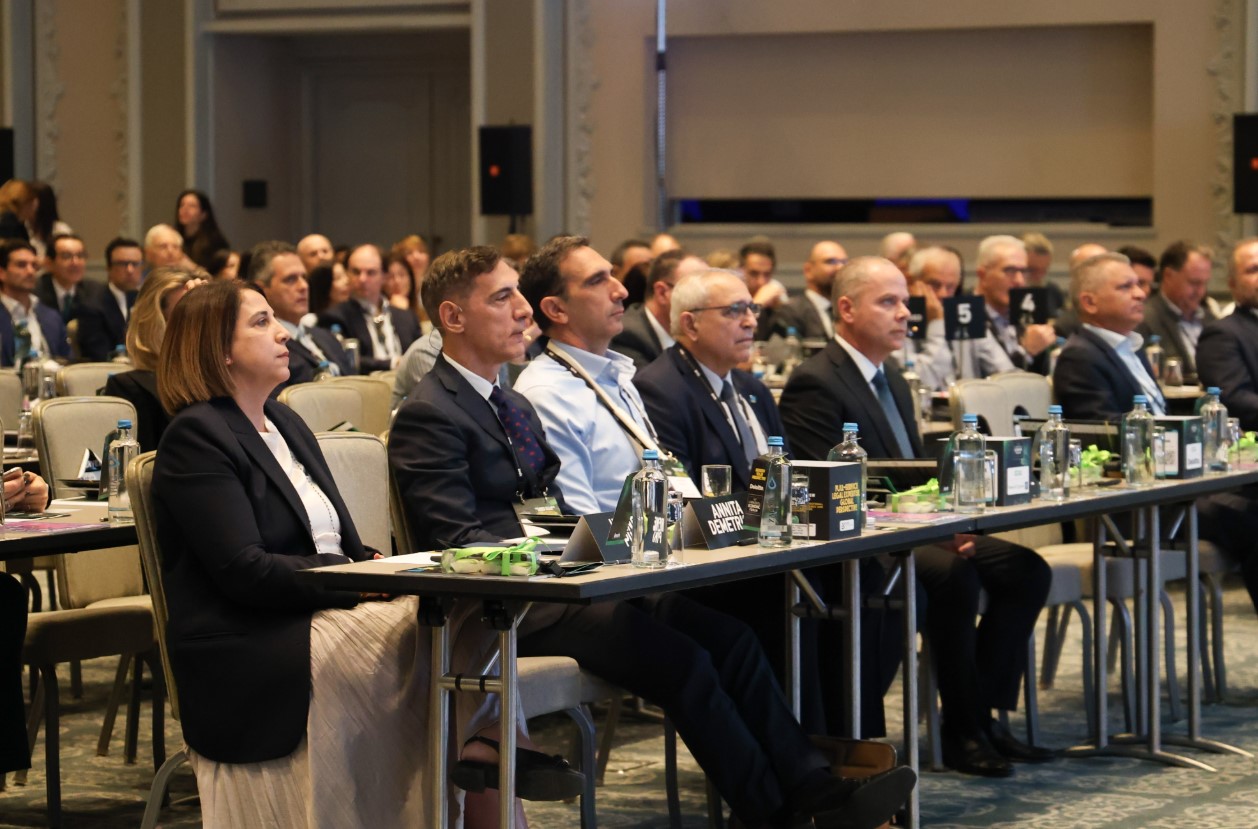
Neocleous cautioned that global instability is far from over, referencing a columnist who commented that Brussels feels like a city preparing for war amid rising geopolitical tension.
Pouangare assured that Cyprus’ banking system remains robust and supportive of new business ventures.
In response to audience concerns about strict banking regulations, Pouangare said that Cyprus is working to simplify processes while upholding the highest compliance standards.
He added that shipping’s unique tax model requires more AML checks, but ongoing efforts aim to streamline these procedures.
When asked about the Cyprus problem, and its absence from discussions at the forum up until that point, Pantelides acknowledged that it remains a critical issue influencing business, particularly in sectors like shipping.
Piki, who was asked to comment, agreed, saying that while the Cyprus issue remains a national priority, it is equally important to discuss reform, competitiveness and other economy-related issues, particularly in an event that focuses on business matters.
The next session, moderated by Yangos Hadjiyannis, CEO of CIM-Cyprus Business School, examined geopolitics and diplomacy in a fragmented world.
In her address, House Speaker Annita Demetriou said that Europe must lead, not merely react, to global developments.
She stressed that strategic autonomy is essential amid global conflicts, technological uncertainty, and security threats.
Referring to the war in Ukraine, the conflict in Israel, and Turkey’s ongoing occupation of Cyprus, she said Europe’s security architecture remains incomplete and that the continent must act decisively.
Demetriou outlined three interlinked pillars of European strength. These include economic stability, technological leadership, and defence capability.
She called for closing the competitiveness gap, fully leveraging the Single Market, and creating a modern EU budget to support industry, green transition, and digital transformation.
Demetriou also urged greater defence cooperation and joint investments, citing initiatives like the ReArm Europe Plan, and said that nations violating international law cannot be reliable security partners.
Demetriou also underscored Europe’s technological and energy sovereignty, supporting strategic investment in key sectors and projects such as the Great Sea Interconnector between Cyprus and Greece, which enhances regional energy security.
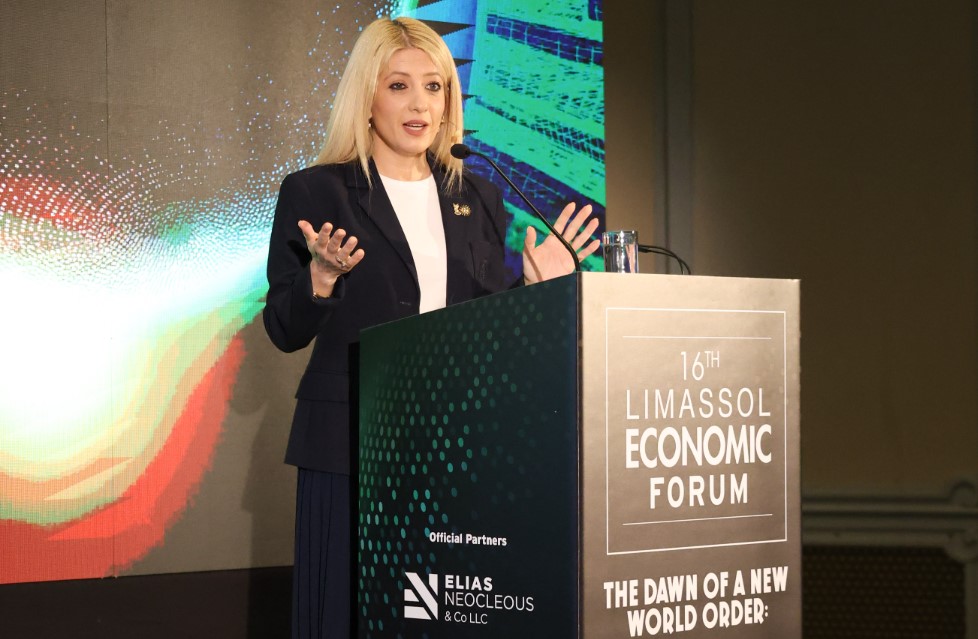
What is more, Demetriou called for EU enlargement to include Ukraine, Moldova, and the Western Balkans, saying this would strengthen peace and stability.
She also urged the EU to play an active role in stabilising the Mediterranean and Middle East, including rebuilding Gaza after a ceasefire.
Demetriou further stated that Europe’s security architecture cannot be complete while Cyprus remains divided, calling for a more active EU role in restarting reunification talks under UN and EU principles.
She said the creation of a European Defence Union is a historic mission for this generation, adding that Europe must prevent aggression, defend its territory, and lead decisively.
She emphasised that cooperation with NATO remains essential, while strategic autonomy must become reality, giving Europe strength, security, and influence beyond its borders.
In a fireside chat with Hadjiyannis following her address, Demetriou said the EU must be clear and decisive on competitiveness, fiscal stability, and healthcare.
She warned that external challenges, including the war in Ukraine, affect smaller member states like Cyprus, and said the EU must prepare for the potential collapse of peace agreements.
Demetriou also acknowledged that populism and political fragmentation, including in Cyprus, threaten European cohesion but maintained that there is room for progress through solidarity and responsible leadership.
She concluded that business leaders must play an active role in defending stability, saying that citizens’ decisions in the upcoming elections will influence the EU’s trajectory.
Other sessions at the forum explored the evolution of global and European economics, the decline of neoliberalism, and the search for a new economic paradigm capable of balancing growth, welfare, and state-led innovation.
Diplomatic representatives also participated in a panel on international relations, sharing national perspectives on security, trade, and cooperation in an increasingly fragmented world.
A keynote presentation by Ambassador (ret.) Jonathan R. Cohen examined how shifts in global power and the rise of artificial intelligence demand a new international security architecture fit for the modern era.
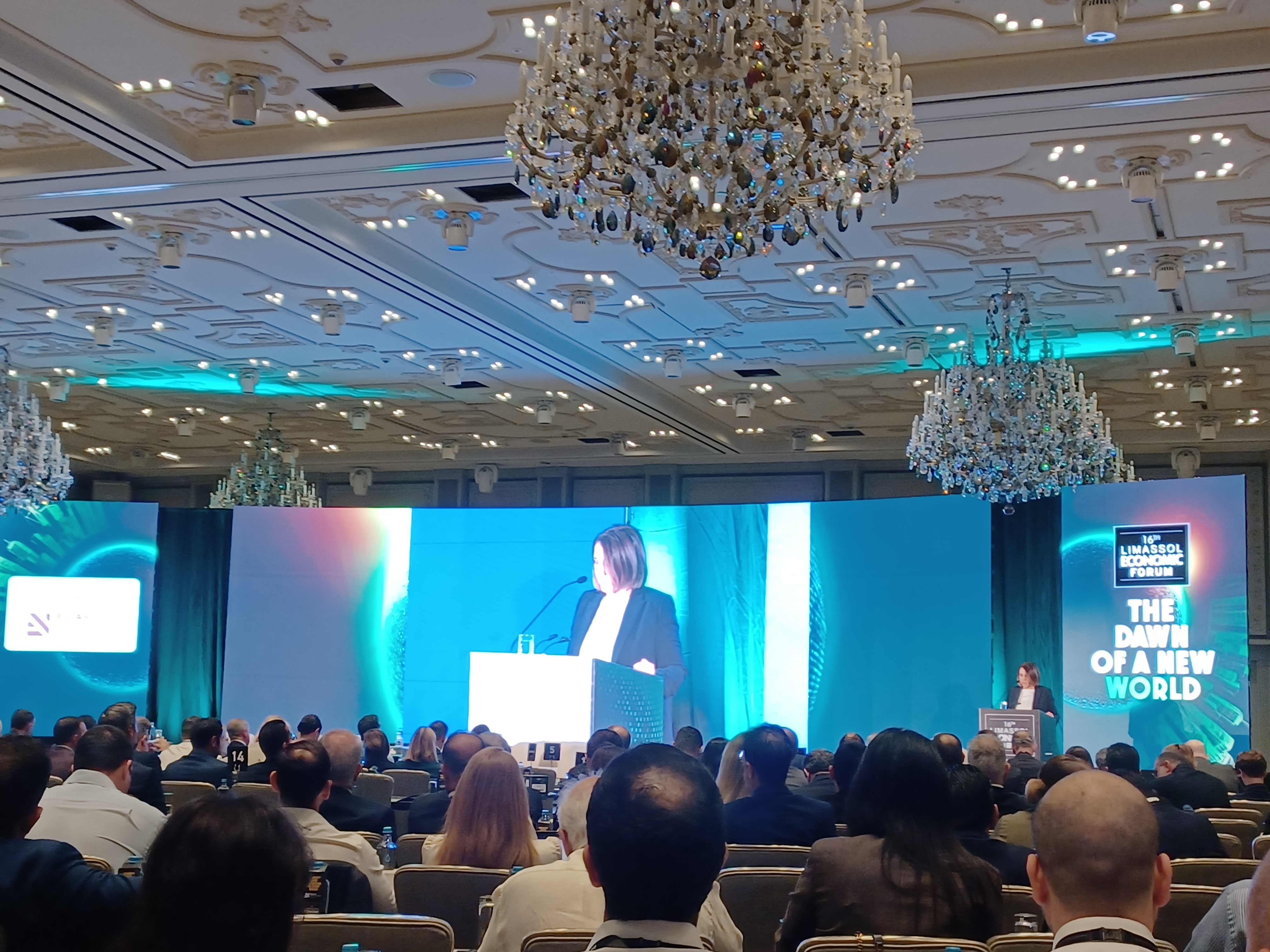
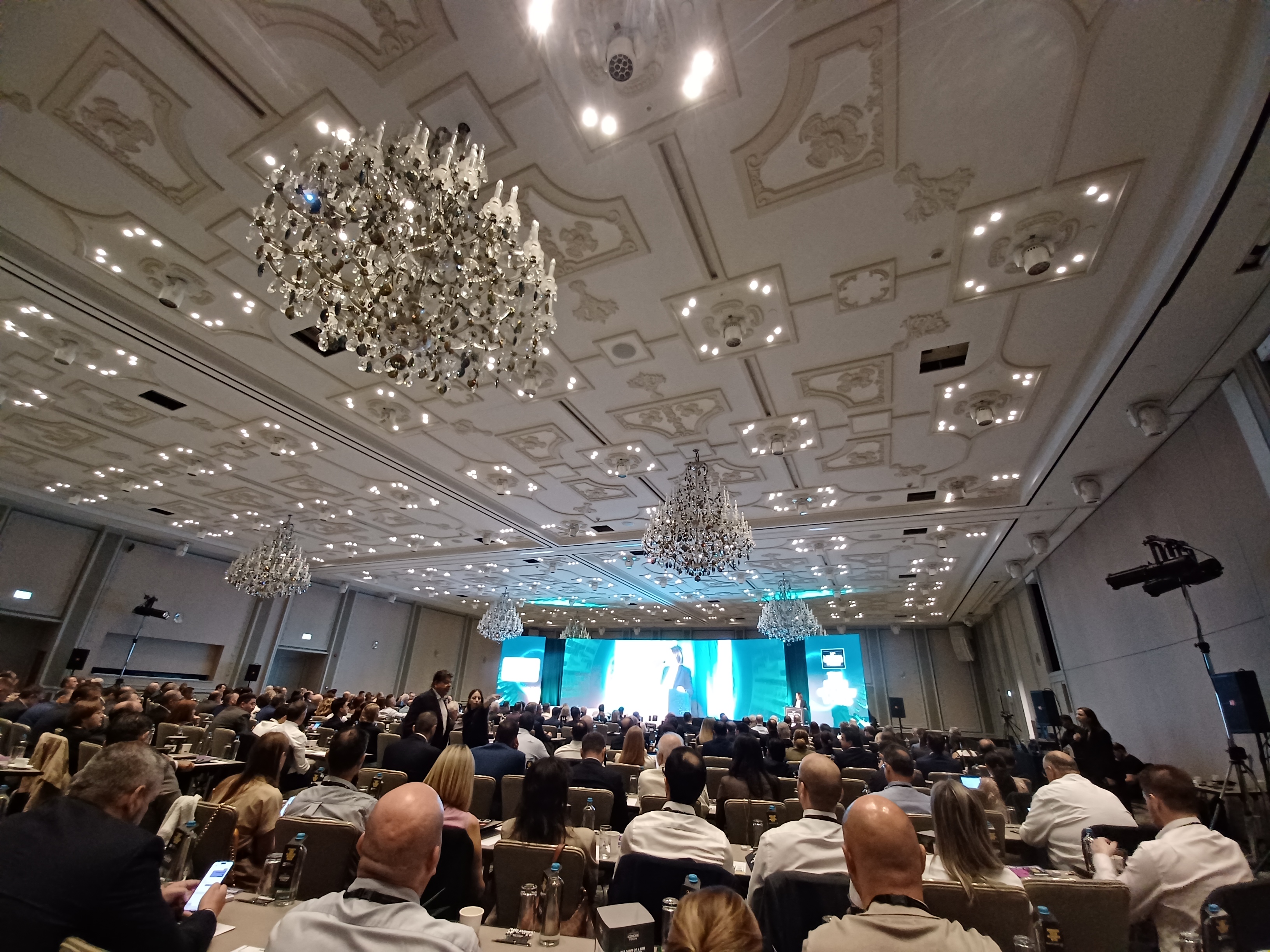
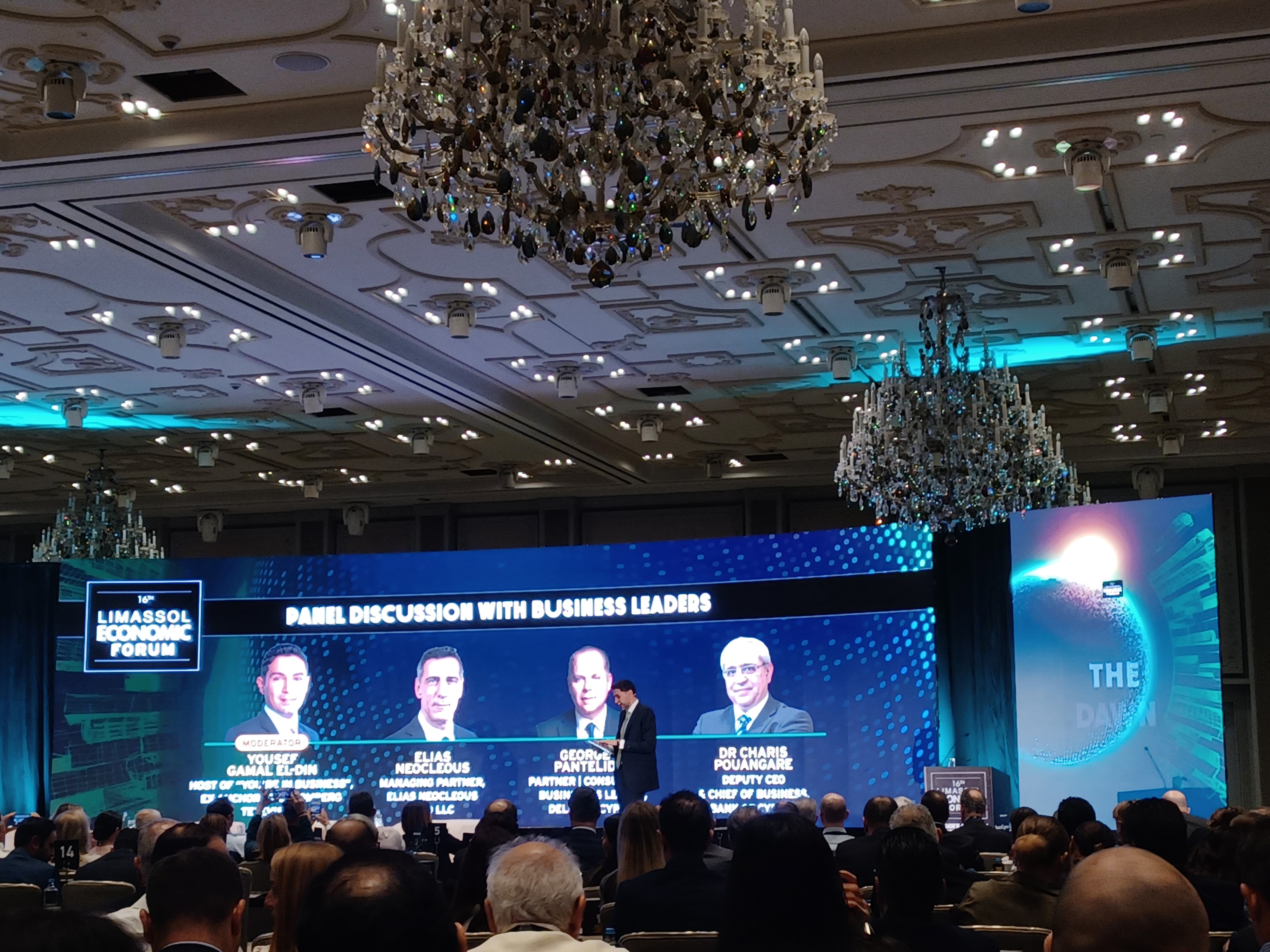
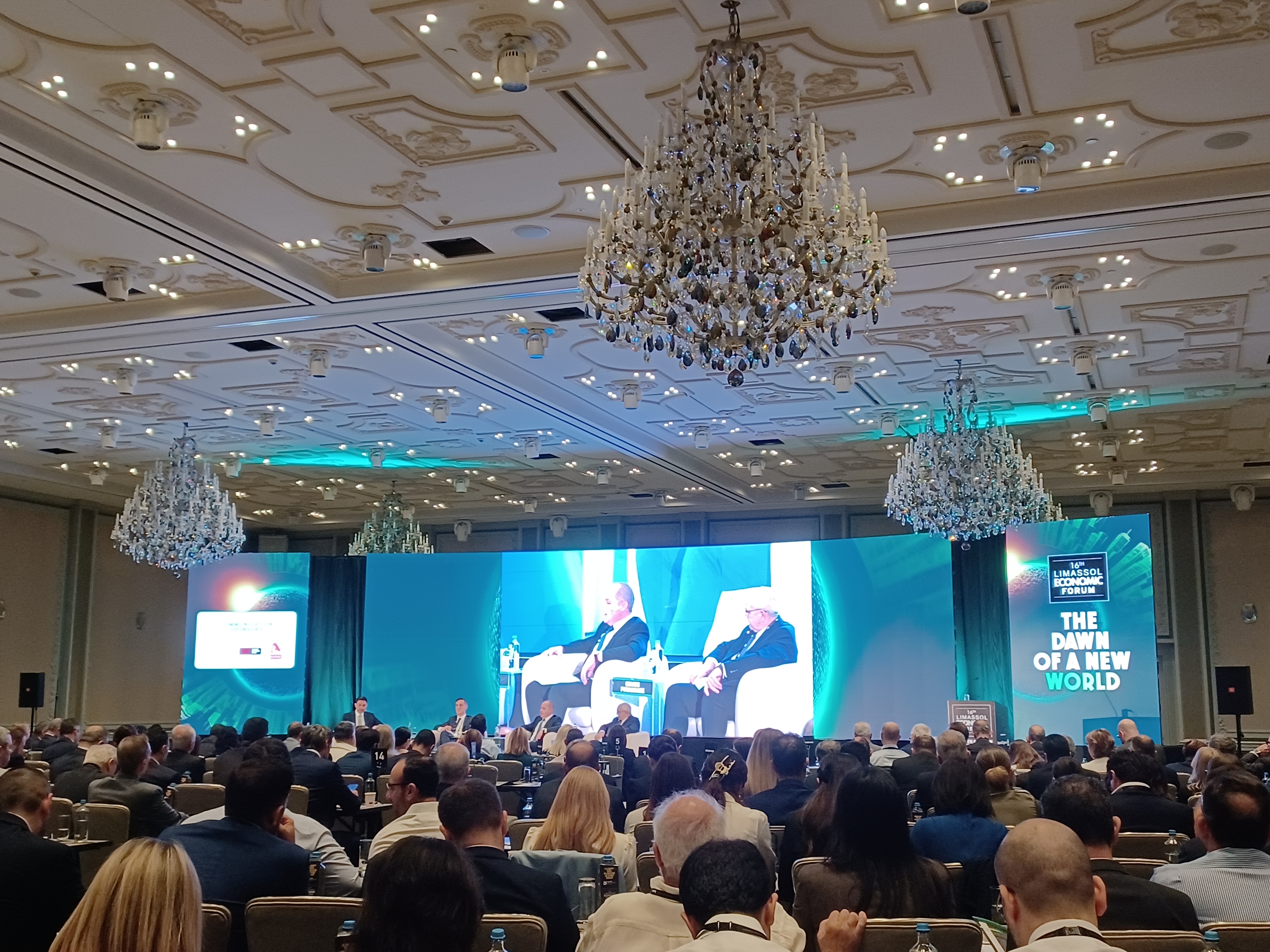
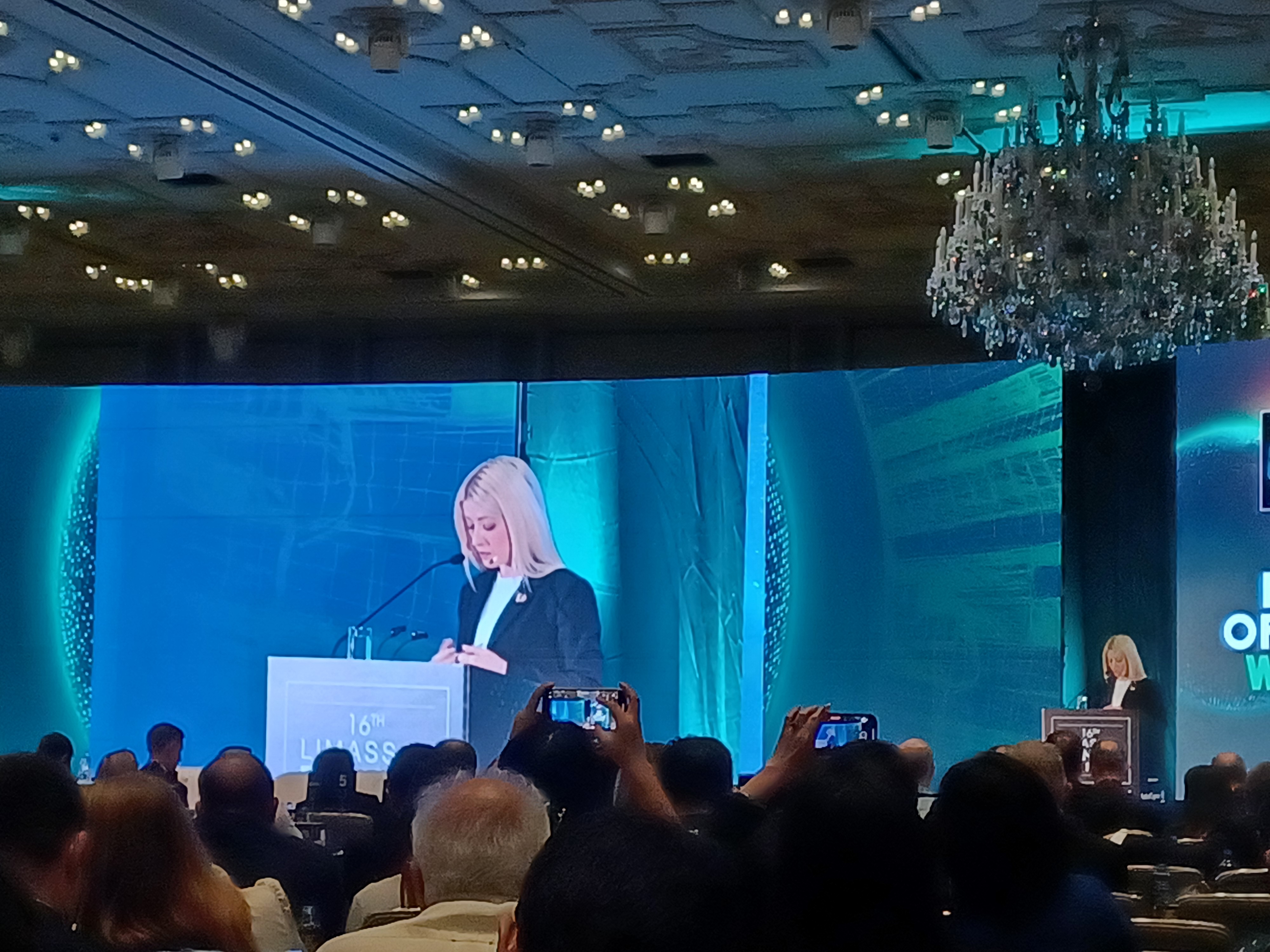
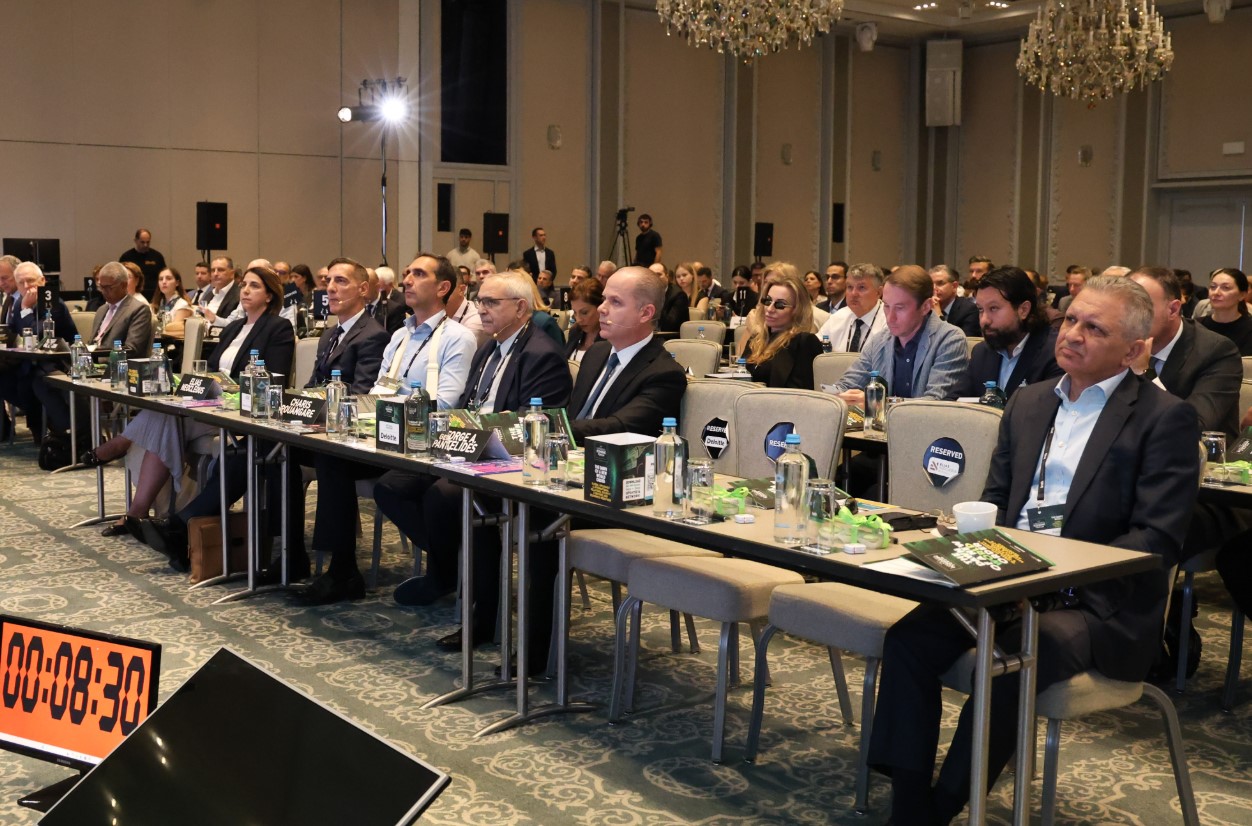
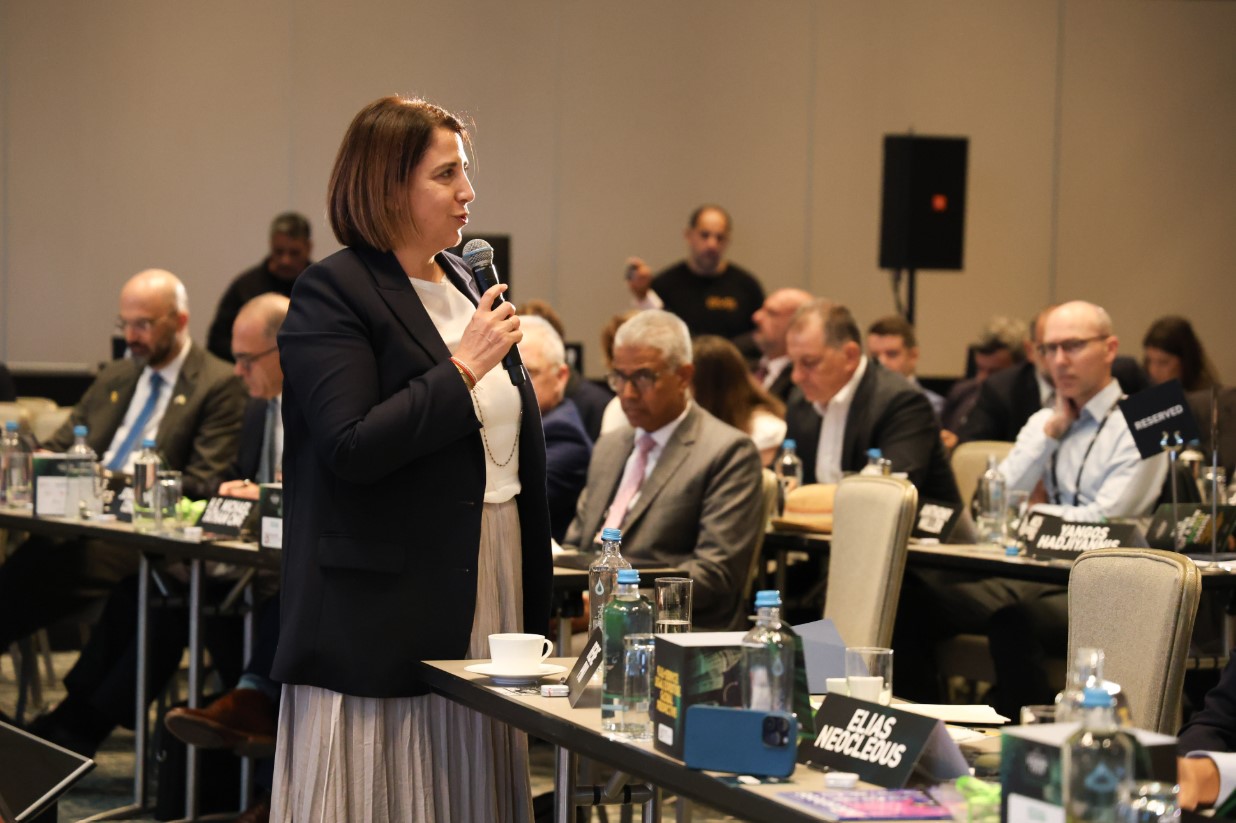
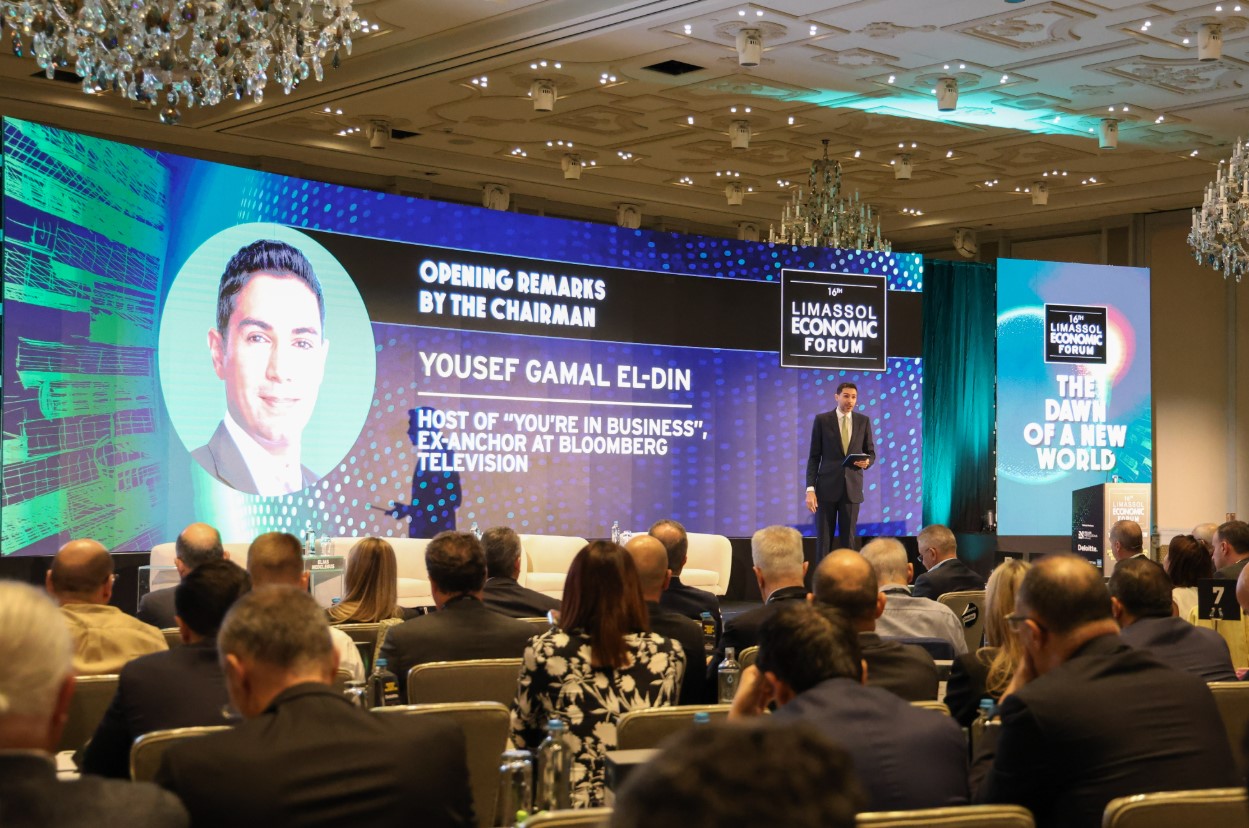
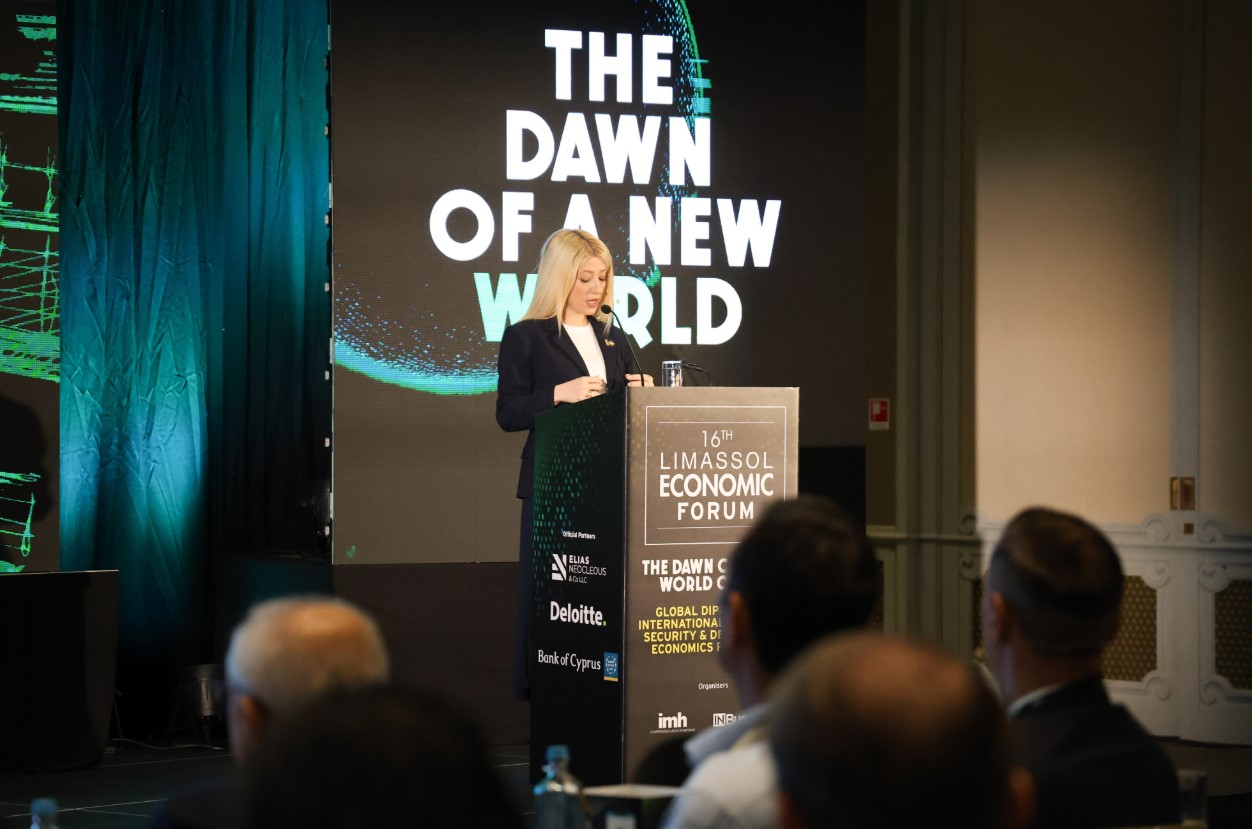





Click here to change your cookie preferences